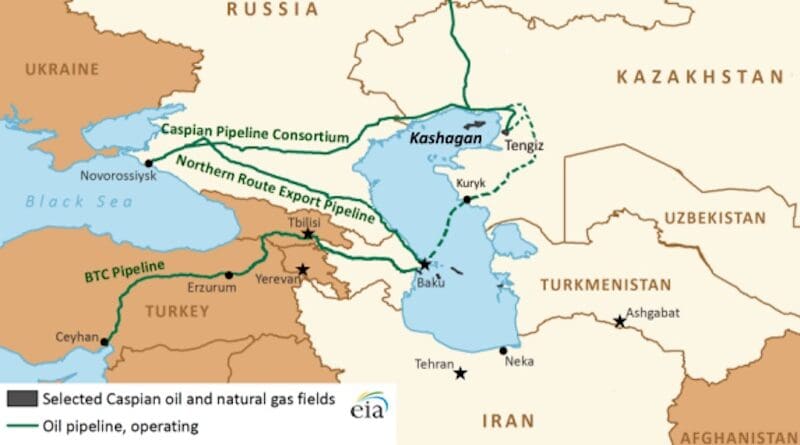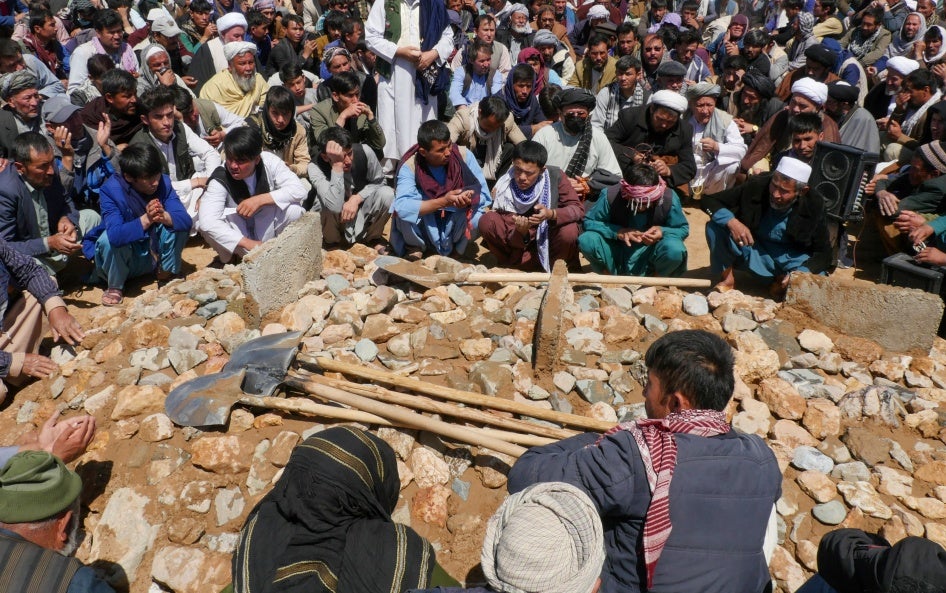The Last Regime Change and the Left’s
Lateness in Opposing Biden’s Wars

Around the world over the past six months, many ordinary and horrified spectators of the Gaza catastrophe have been left wondering why the US acts as if handicapped in its efforts to rein in its client state Israel, even as North America’s international standing dwindles abroad, while Biden loses popularity at home and elections loom. Onlookers were left stymied and confused by the US president’s dismissal of swing-state Michigan’s “Abandon Biden” movement, as Arab-American voters fiercely hit back against what Dearborn MI mayor Abdullah Hammoud called Biden’s authoritarianism, hemorrhaging the president in his party’s primaries—just as the campaign had vocally promised to do should Biden continue on his path of docility in the face of Netanyahu’s violations of the laws of war while receiving unprecedented American aid. Biden’s displays of weakness before the Israeli leadership’s defiant ingratitude towards its American benefactor has alarmed conspiracy theorists, who point to Biden’s pusillanimity, and to Blinken’s genuflections as proof of the antisemitic belief that Israel, despite being the US’s dependent client-state and privileged subject, actually directs US policy as a whole. It is no surprise that such ideas would at once confirm both the median antisemite’s delirium along with Netanyahu’s, whose megalomania once famously inspired Bill Clinton to muse, “Who the fuck does this guy think he is—who’s the superpower around here?” after the two leaders met in 1996. Megalomania is also a trait that characterized Netanyahu’s role-model Ariel Sharon. Such hubris is what makes many Netanyahu supporters indifferent to a very real danger to Israel and to the diaspora: the American leadership’s feigned impotence whenever the world clamors for Washington to rein in Israel, leaves a misleading impression on vast audiences: an indelible memory that will undoubtedly fuel future antisemitism, by projecting the illusion that Israel rules the US, rather than the other way around.
The view from inside Israel, even today, is the inverse: center-right newspaper Yedioth Ahronoth featured a cartoon that would have gotten its illustrator fired had it appeared in the Western press, showing a dwarfish Netanyahu arm-wrestle a towering Biden, with the PM’s fist like a baby’s wrapped around the senile giant’s finger. In the same paper, columnist Nahum Barnea wrote “Netanyahu has been dealing with America the way a spoiled teenager deals with his parents: perpetual rebellion, perpetual insults and perpetual scandals.”
Biden’s flaccid condemnation of Netanyahu is not only “weak”, but also performative: from judging massacres as “over the top” in the comedic language of SNL, to reportedly calling Netanyahu “an asshole” privately, as Blinken came back from self-humiliating junket-visits to the Middle East. American claims of a “rules-based order” are no longer taken seriously even by the usual lapdogs among Europe’s elites like Josep Borrell.
Nobody has thus far pointed out the possibility that the US administration supported the Gaza campaign over the past grueling months because it saw this war as its last chance to doggedly push through at least one successful overseas regime-change, before the end of both Biden’s uninspiring presidential term and the natural termination of the old man’s life cycle, of which he and his staffers increasingly wary.
Biden officials’ callousness toward civilian suffering is nothing new. Consider recent years of thwarted American overseas interventionism. For pundits, the prospects of rallying modern Ukrainian Cossack regiments to topple the Russian juggernaut was, after all, perfectly worth the deaths of more than half a million young Ukrainian men, and many more un-conscripted civilians. The US and EU happily exploited Ukrainian poverty and naiveté—the Ukrainians’ deleterious thirst to belong to an idealized, imaginary “West” was taken advantage of by the real West, along with Ukrainians’ very un-Western and un-contemporary cultural belief in the need to forge national identity in the flames of collective sacrifice and unconventional warfare. The result: 600.000 dead Ukrainians and the unceasing fragmentation of the country.
Famine for Afghanistan presented no dilemmas for Biden, so long as sanctions promised a slap on the bearded faces of the triumphant jihadists after NATO lost that maimed country. The scarcity of medicine in Iran’s previously impressive healthcare system, a result of Biden’s renewal of Trump’s maximum pressure policies, has not stirred consciences in the White House. Whether you call Gaza a massacre, ethnic cleansing, genocide, or hellscape, for Biden the uprooting of an official enemy by way of a proxy client-state is simply an example, a point to be made, an American perception-management op.
Past US presidents resorted to more artful and elegant theatrics. JFK earned jealous admiration through Marilyn Monroe. Reagan even stood accused of having impersonated senility to get through the hearings over Iran-Contra. Let’s not forget George W. Bush’s performances of imbecile generative grammar. “They misunderestimated me” indeed: the circus of “Bushism” was what made a Trump presidency possible.
Biden drags farce to new lows, in terms of the quality of his acting-skills, transparently dishonest when bleating about a “ceasefire by Monday!” over ice-cream to throw off Michigan’s “uncommitted” activists during primaries. Ben Shreckinger’s biography “The Bidens: Inside the First Family’s Fifty Year Rise to Power” chronicles a Biden who acts as sociopathic and opportunistically as Netanyahu or Trump. There is no reason doubt that, until it became a pre-election optics-crisis, Biden had adamantly signed onto Netanyahu’s, Gallant’s and Smotrich’s plans to level the Gaza Strip. The only major international ideal Biden has shown dedication to is regime-change by any available means. Yet it remains a goal that has continuously eluded him, because of the problematic factor of populations standing in the way. Thus far, Western coup attempts backfire by strengthening the stranglehold that autocratic governments under siege have over their civilian populace. This boomerang effect was proven in Syria and in Venezuela, where ruling bodies and their popular support bases grew in tenacity, despite or because of “maximum pressure”. Obama, under whom Biden was VP, attempted to rehabilitate the art of overthrow-by-bombardment as a progressive (rather than Bushite) cri de guerre. Yet the only coup-d’état technique that thus far seems to work, is the sort that was discredited by global moral outrage towards Plan Condor in 1970s Latin America. More recently, that playbook was implemented by Pakistan’s military against deposed Imran Khan, in a country that nobody from the West cares about or pays attention to.
US officials have learned by now that when dictators in the Muslim world are executed, this opens up a vacuum that is quickly filled by radicalized jihadi elements in populations, as happened after the Biden-approved Iraq invasion. Biden could not fend off the Taliban and was instead reminded of lessons forgotten by the West during the Cold War: lessons about the resilience of native guerrilla insurgent units. The wrong lessons: MSNBC Democrats hoped for a “new Afghanistan” that would entrap Russia in Ukraine. Now that the Ukraine war also seems unwinnable, Biden wants to leave office having at least uprooted wretched little Hamas, even if that means uprooting all Gaza Palestinians along with their governing entity. Civilian death rarely factors as relevant in Biden’s foreign policy calculations and is offset by the need to show that the empire’s not dead yet and that America can still pull off one impressive coup or “humanitarian intervention”. But these efforts, too, have failed: the world was not dazzled or awestruck for a moment by the American-Israeli response to October 7th as it was by the charismatic Zelensky’s fight against Russia. Both the Ukraine crusade and American endowment of Israel have failed at their intended mythmaking objective of rejuvenating America’s global image: the US seems weaker, more irrational, unfree and outdated, rather than potent, despite or because of its fanatical support for Kiev and West-Jerusalem. One would be tempted to joke that this is Biden’s “Homer Simpson moment” for exclaiming “Doh”, were the consequences not so bloody.
Much of the world rejoiced at seeing America struggle with the Houthis’ idealistic pirate-state. This series of frustrated regime-change attempts culminates in the inability to uproot Hamas’ pauperized government from tiny Gaza, even after Israel displaced Gaza’s entire civilian population, unable to find the antlion lair of the Hamas commanders, after purporting these to be located beneath Al-Shifa hospital.
The violence, because of scale, is seldom recognized from afar as yet another proxy-war and regime-change-op. Of course, that’s not what Netanyahu would like it to be—the Likud leader, ever since the death of Sharon has sought to fill the shoes of father-figure to the settler-movement, promising to avenge fundamentalists evacuated from Gush Katif in 2005 by emptying Gaza of all Palestinians in 2024 while the anemic US president still sleepwalks.
But for the Biden White House, all the Israeli invasion amounted to, before it came to embarrass Western elites, was a last chance to celebrate one successful and memorable deposition of an official enemy government, (Hamas, to be replaced with Abbas’ Palestinian Authority) civilian lives be damned as they were in Syria, Iraq, and Ukraine.
By now, not even Linda Thomas-Greenfield could seriously argue that things are looking good for American exceptionalism. The hero-cult surrounding khaki-clad warrior-fundraiser Zelensky—an aura of heroism which is also rapidly fading from our fragile, TikTok-fraught memory—helped us quickly forget the disgraceful images of Western fugue from Afghanistan. But with the current war, disgrace is back full-circle, the heroism passé. The endeavor at “shock and awe” to win hearts and minds abroad, has ultimately given way to a morbid burlesque of self-emasculation of US foreign policy in the 21st century: a defeat which may inspire the West’s enemies for decades. There is also the clear danger that all the speculations and misunderstandings about Biden’s true intentions behind overindulging Zelensky and Netanyahu will fuel antisemitic conspiracy theorists long after Biden shuffles off this mortal coil.
But political instinct is also lacking among imperialism’s critics. In response to the “mystery” of Biden’s capitulations to Netanyahu’s tantrums, an array of commentators associated with the left, from the New Left Review’s Wolfgang Streeck to fellow traveler Geoffrey Sachs to pro-Palestinian online commentators all struggle to explain Biden’s willingness to take a nose-dive in domestic polls and risk electoral defeat for the sake of pleasuring Netanyahu.
Streeck, Mearsheimer and Sachs are only the most sincere and eloquent among these critics, who treat a vulgar and relatively obvious situation as if it were rife with opacity and sinister riddles.
The thesis that Israel controls US-Middle East foreign policy, advanced by John Mearsheimer and Stephen Walt in their 2007 book “The Israel Lobby” was discredited by none other than Norman Finkelstein, who insisted that while Israeli advocacy groups do impact Washington’s foreign policy towards Israel, they are not what determines American military operations throughout the wider Middle East or in Iraq. Finkelstein ridiculed Walt-Mearsheimer’s suggestion that Cheney would be submissive or at the mercy of an ideological commitment to Zionism, or, for that matter, to anything other than Cheney and a 500% boom in Haliburton stock. But because the enemies of both Mearsheimer and Finkelstein tend to be the same people, Finkelstein’s critique was neglected by untrusting liberals who lump him and Mearsheimer together.
Enter Wolfgang Streeck. In his column “Master and Servant” for the New Left Review’s blog Sidecar, the German political scientist proclaims that the US has become the unwitting, pathetic hostage of the Israeli nuclear behemoth it fed: “Has the US lost control over its protégé, servant turned into master, master into servant? (…) Is the US, blackmailed by the threat of a Middle Eastern Armageddon, now forced to allow Israel to pursue ‘victory’ at any price? Does Israel’s capacity for nuclear war bestow on the Israeli radical right a sense of invincibility, as well as a confidence that they can dictate the terms of peace with or without the Americans, and certainly without the Palestinians? The political costs incurred by the US for not ending the killing – either not wanting or not being able to do so – are likely to be gigantic, both morally, although there may not be much to lose in that regard, and strategically: the ‘indispensable nation’ paraded before the world, helpless in the face of brazen disobedience on the part of its closest international ally.”
Streeck identifies the Israeli mentality as the “Samson doctrine”: “In fact, there is an even more ancient model of Israeli heroism, the myth of Samson, which seems to be no less popular among at least some of the nuclear strategists in and around the IDF command. Samson was a ruler of Israel – a ‘judge’ – in biblical times, during the war between the Israelites and the Philistines in the 13th or 12th century BCE. Like Heracles, Samson was endowed with superhuman physical strength, enabling him to kill an entire army of Philistines, reportedly one thousand strong, by striking them dead with the jawbone of a donkey. After being betrayed and falling into the hands of the enemy, he was kept prisoner in the main temple of the Philistines. When he could no longer hope to escape, he used his remaining strength to pull down the two mighty columns that supported the roof of the building. All the Philistines died, together with him. (…) Nuclear weapons are sometimes claimed by radical pro-Israeli commentators to have given the country a ‘Samson option’ – to ensure that if Israel has to go down, its enemies will go down with it. (…)Myths can be a source of power; a credible threat of extended suicide can open a lot of strategic space –“
It is an interesting juxtaposition: Samson, the Jewish Hercules, has cowed Biden, the whimpering opportunist, into submission, the mewling old emperor taken hostage.
Instead of reaching for the Torah’s powerful myths of ancient guerrilla resistance, or for TikTok for that matter, why not apply scientific method, and seek the simplest explanation?
Biden’s sluggishness in responding to pressure is not mere senility. Nor can it be entirely chalked up to former US diplomat Chas Freeman’s explanation, which is that Biden’s generation of politicians still embrace Leon Uris’ “Exodus” epic account of Israel (an aesthetic Democrats also clearly borrowed for the propaganda promoting the Ukraine war, which cast Zelensky as a 21st century Moshe Dayan.) The simplest explanation is two-fold. Biden’s White House, firstly, grew accustomed to harmonious compliance and sycophantic consensus within his party throughout the wars waged during the years preceding October 2023. Second: more than any other Democrat alive, Biden boasts a stronger record of unabashedly declaring himself for sale to all pressure groups who milk politicians, ever since his youthful sleazy entry into Delaware politics. Data from the NGO Open Secrets highlights Biden’s having received more than double the donations from AIPAC and similar Israel-linked groups than the next tier of top recipients on that committee’s list. Compare Biden’s $5,736,701 in donations from pro-Israeli pressure groups to New Jersey’s Michael Menendez ($2,500,005) or Hillary Clinton ($2,361,812) Such lobbyists are of course doing nothing foreign to the auction-house logic of Washington, and Biden has from the start of his presidency upheld the priorities of militarist neoconservative donors.
Much like the farcical “aid” to Gaza, Biden’s foreign policy has sought to reverse damage he himself inflicts upon American “Exceptionalism’s” image abroad. These ill-conceived efforts mounted ever since his now-forgotten inaugural scandal—the shambolic US-NATO withdrawal from Afghanistan, which disheartened Western elites, but was glorified by sectors of the left as a milestone defeat of imperialism even as Biden seized that famished country’s assets. A genuine defeat of imperial arrogance in Afghanistan would have been a democratic plebiscite in which the Afghans were, for once, consulted on what Afghans actually want—Western protection from the Taliban, or immediate withdrawal and compensation for all the years of ruination? What about Western prosthetic medical technology to aid the maimed country’s abnormally high percentage of amputees? Afghanistan had no winners except for defense contractors, regardless their race or religion.
Trillions of dollars and four years later, Biden finds himself exactly where he started: omening the decadence for the Western foreign policy establishment, without a single coup that stuck. Just many experiments, all very expensive fuckups, though more affordable than the traditional military onslaught that didn’t “outsource” to foreign legionnaires. American and European progressives who waited three years before criticizing Biden’s wars and his crackdowns on anti-war voices, are all to blame for the boneyards in Gaza and the Donbass today. We must not forgive ourselves or anyone else. Where were we all this time?



